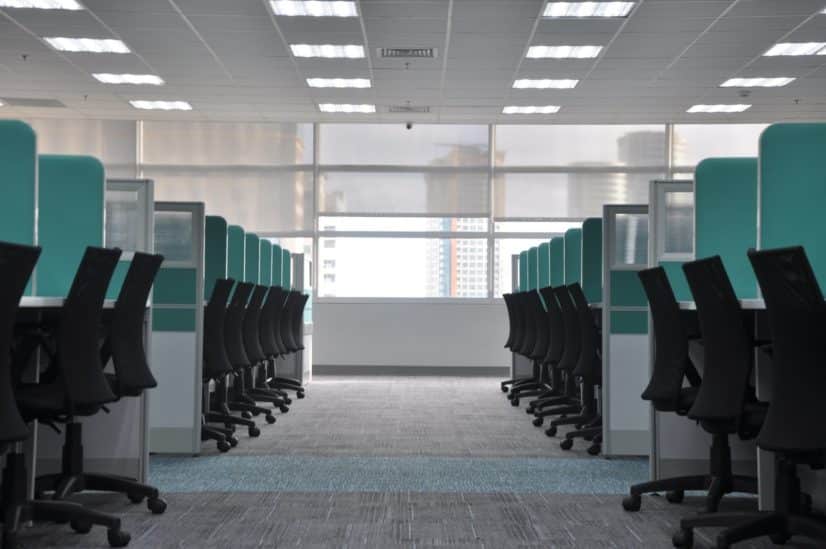There are many considerations when designing or optimizing a new workspace. Whether retrofitting an older structure, moving into a newly constructed space or simply updating a current office, infrastructural choices such as layout design, structured cabling and sound masking are all essential tools in helping any organization work at its best. Although all are important, sound masking has increasingly become an integral part of workspace design as more offices shift to open-concept layouts — yet it remains one of the lesser understood tools available today.
Here we’ll discuss what sound masking is and go over the benefits it provides to professional settings of all sizes.
What Is Sound Masking?
Sound masking uses strategically placed speakers to add ambient noise that manages (or “masks”) other unwanted noises within a space. It’s generally used to help increase the comfort of employees and clients, increase workplace productivity, maintain privacy and more.
Also known as “white noise” or “pink noise,” sound masking takes into consideration the walls, floors, ceilings and other structures such as cubicles in a space and adds a soft, deliberate background noise to help comfortably drown out unwanted noises such as conversations from nearby workers or offices. It is commonly used in offices with open floor plan designs, call centers and businesses that require privacy for legal reasons, such as medical offices, financial institutions and more.
What Are the Benefits of Sound Masking?
Although the role of sound masking is simple, the benefits that it provides are wide and varied. For most businesses owners, even those who have not considered office sound masking before, the benefits are well worth the investment.
The first and most important benefit of sound masking is speech privacy. Sound masking systems help keep private conversations private, such as those between employees, supervisors and customers on the phone. Whether your business is a call center or a standard office with an open floor plan, all employees deserve to have peace of mind that they can do their jobs without eavesdropping, even if unintentionally, from fellow employees.
In addition, supervisors will enjoy knowing that their offices are sound protected and that they can hold private meetings without employees overhearing. Customers can also benefit, as they will not be subjected to office noise over the phone and their personal information cannot be overheard by those in the office. Speech privacy is especially important in industries where privacy laws are strict, such as medical offices and financial institutions. For those types of businesses, patient and client privacy is safeguarded by office sound masking.
Sound masking has also been proven to help employees stay focused and improve their overall work productivity. Without the bothersome distractions that come from fellow employees’ conversations and various background noises like phones ringing and computers dinging, staff members can focus primarily on their own work and stay on track.
Last, sound masking systems create a more comfortable work environment for both employees and clients or customers. Whether a space tends to be uncomfortably quiet or has too much background noise, sound masking can help balance ambient noise levels to a gentle, soft, comfortable range.
Taylored — the Sound Masking Experts
Taylored has been helping businesses stay up to date with customized security, IT and tech solutions for over 35 years. We have been designing, installing and maintaining sound masking systems for nearly 15 years, helping countless clients create more comfortable and private open floor plan offices, office suites with cubicles and medical facilities.
Our wide range of experience and one-on-one approach to business allows us to create the ideal sound masking system for nearly any business. Using industry-leading tools, equipment and software, we guarantee that our sound masking solutions will meet your business’s needs and exceed your expectations. Contact us today to see how Taylored can help your business implement a sound masking system.

